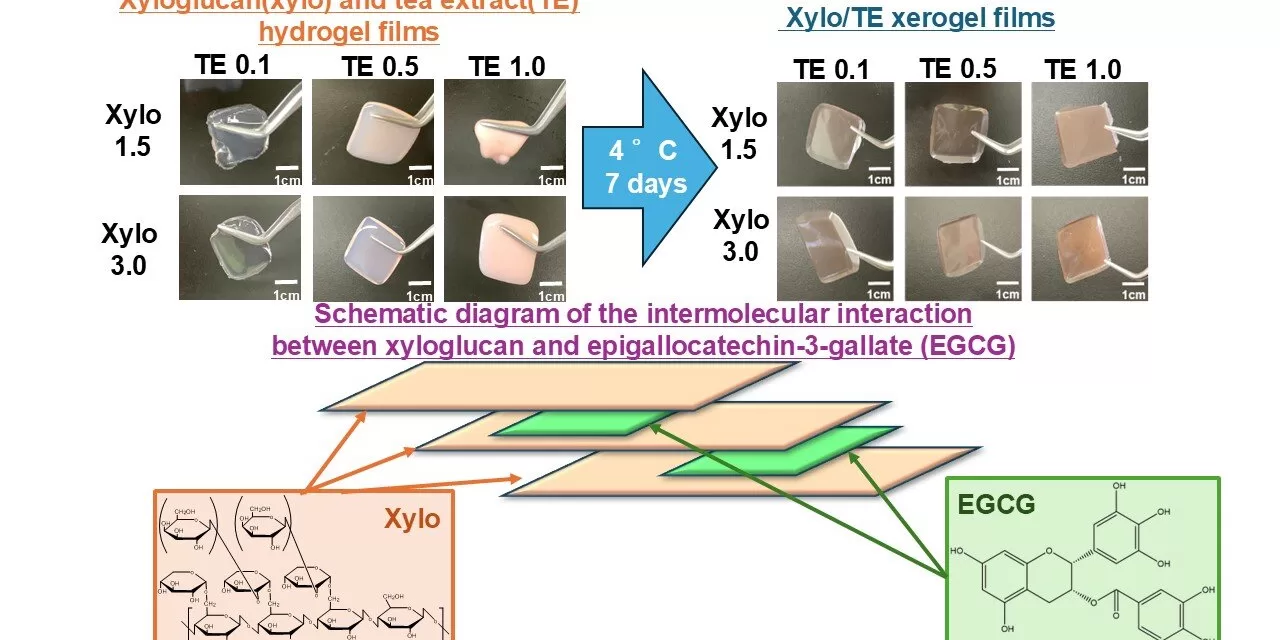Oral mucositis is a common and painful side effect of cancer treatments, affecting 30-40% of patients.
Researchers at Tokyo University of Science (TUS), Japan, have explored the potential of tea catechins in developing a novel treatment for oral mucositis that minimizes patient discomfort. Their findings were published in ACS Omega.
Oral mucositis is a painful inflammation of the mouth lining often caused by chemotherapy and radiation. The anti-inflammatory properties of green tea can alleviate oral mucositis.
The research team designed a thin mucoadhesive film enriched with tea catechins, which can be applied directly to affected areas for prolonged relief. This film is a thin, flexible material that adheres to the inside of the mouth to deliver active ingredients, like medications, directly to the affected area. It offers a more convenient, inexpensive, and user-friendly alternative to mucoadhesive tablets, which often have limited usability.
The films were prepared by combining xyloglucan (Xylo), a water-soluble polymer extracted from tamarind seeds, with green tea extract (TE) which contains over 75% catechins, including more than 40% epigallocatechin gallate (EGCG).
The researchers developed two types of films: hydrogels, prepared by drying Xylo/TE solutions at 4°C for 24 hours; and xerogels, which were dried for seven days, resulting in firmer, drier films.
The xerogel films demonstrated better mucoadhesive properties, withstanding up to ten times more force and performing similarly to commercially available oral mucoadhesive films.
The team also examined the release of EGCG by soaking the films in water, discovering that higher concentrations of Xylo facilitated greater EGCG release over time, highlighting their potential as mucoadhesive films.
“Xylo/TE xerogel films demonstrated high strength, hydrogel-like properties due to rapid water absorption, and adhesion forces comparable to commercial films,” says Prof. Hanawa.
The team is now focused on enhancing the film’s design and evaluating its safety and efficacy through cell-based experiments, advancing toward a promising solution for oral mucositis.
More information:
- Kaoru Hirose et al, Preparing and Characterizing of Xyloglucan Films Containing Tea Extract for Oral Mucositis, ACS Omega (2024). DOI: 10.1021/acsomega.4c06410
Journal information:
- ACS Omega












